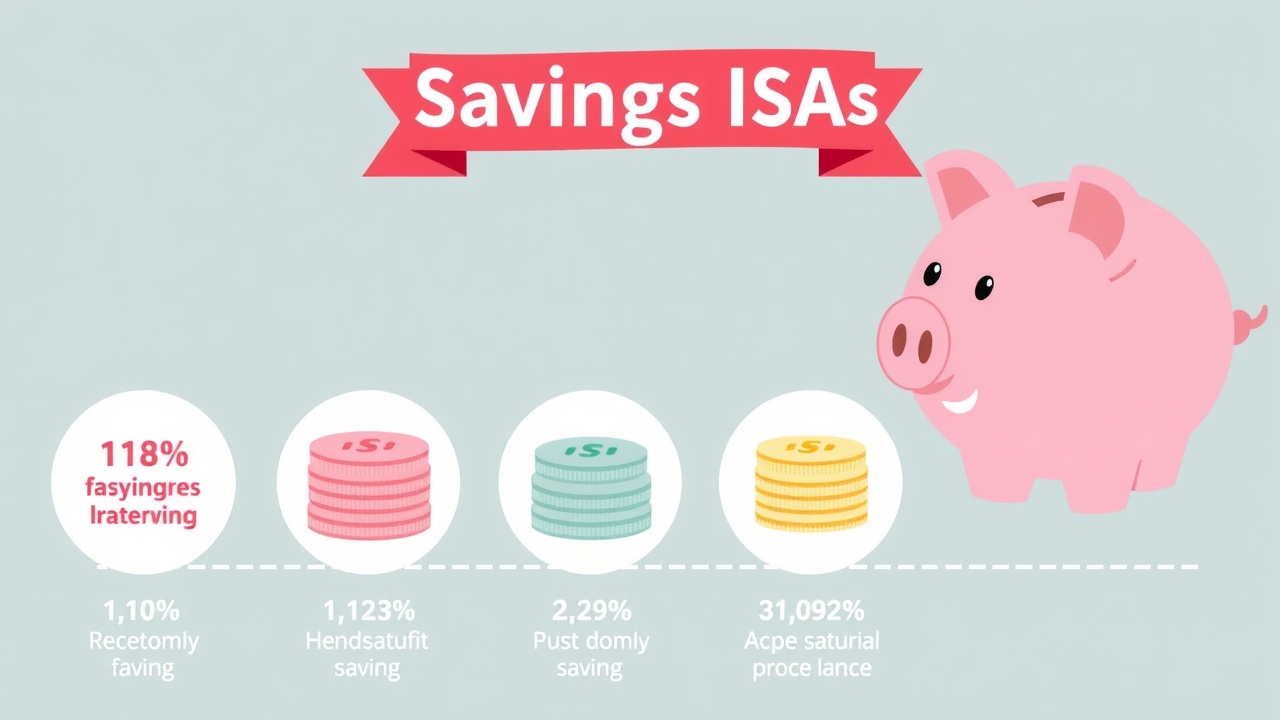
The chancellor has been urged to maintain the cash ISA limit at £20,000 in an open letter from the Building Societies Association
We examine whether obtaining a mortgage or loan will be more difficult if the cash ISA allowance is reduced.
The chancellor has been urged by mortgage and loan providers to maintain the cash ISA limit at 20,000, arguing that lowering it would make lending more costly and challenging.
Rachel Reeves received an open letter from the Building Societies Association (BSA) expressing their "concern" about rumors that the cash ISA limit might be lowered.
According to the statement, deposits held in cash ISAs serve as "an important source of funding for banks, building societies, credit unions and other providers" in addition to being a crucial component of an individual's savings since they allow those funds to grow tax-free.
The deposits are subsequently used by these financial institutions to finance loans to individuals and companies; according to the BSA, cash ISAs contribute to the affordability and accessibility of mortgages and loans.
Therefore, a significant reduction in the cash ISA limit may "lead to higher borrowing costs and reduced access to credit across the economy," the association cautions.
"Efforts to boost economic growth, including the government's commitment to delivering 10.5 million new homes, would be undermined.
A reduction in the cash ISA allowance would "undermine a product that has stood the test of time" and send a deterrent message to savers who are using it to plan for the future, the BSA added.
Speculation has been brewing since the beginning of the year about whether the chancellor will cut back on how much of your tax-free ISA allowance you can use for cash savings.
Reeves and her Treasury team have reportedly been considering lowering the cash ISA cap to as low as 4,000 in order to encourage British citizens to invest their ISA funds in the stock market.
The transfer would occur at a time when the London Stock Exchange is having difficulty keeping up with its American cousins and UK plc is feeling unloved.
Treasury has not confirmed or denied that the cash ISA limit will be lowered, but earlier this year, the chancellor stated that she wished to promote a "culture of investing" in Britain similar to that which exists in the US.
Additionally, Reeves stated to the press that she aimed to "get the balance right between cash and equities to earn better returns for savers" in their Individual Savings Accounts (ISAs).
At her speech at Mansion House on July 15, Reeves might make an announcement regarding changes to the cash ISA.
Will it be more difficult to purchase a home if the cash ISA limit is reduced?
According to the open letter, the BSA contends that lowering the cash ISA limit will result in fewer lender deposits. The building societies contend that they will have less money to distribute, making it more difficult for them to offer mortgages and loans, if deposits decline.
This is supported by Chris Irwin, director of savings at Yorkshire Building Society, who told the BFIA that lowering the cash ISA cap would have "significant wider impacts" and that the total value of cash ISA balances in the UK is over 300 billion.
According to Irwin, a large number of financial institutions finance mortgages and loans to individuals and companies using cash ISA deposits.
The UK mortgage market is supported by cash ISA deposits, which also serve as a direct investment in the country's economy. Mortgages may become less accessible and more expensive if ISA deposits are reduced.
"Cash ISAs are a vital source of funding to allow us to offer more mortgages to those that need them," Irwin continues, adding that they account for 39% of all building societies' retail savings balances.
A reduction in the limit could significantly limit lending activities because tax-free savings products hold such a large percentage of deposits.
Additionally, he cautions that lowering the cash ISA allowance will put the government's ambitious plan to construct 1.5 million new homes in jeopardy because "reducing ISA limits could make that more difficult and have a significant impact on economic activity."
According to Cecilia Mourain, chief homebuying and savings officer at the investing and savings app Moneybox, the government would be mistaken to reduce the cash ISA allowance.
The action, according to Mourain, will "discourage sensible saving behavior, weaken demand for a popular product, and disrupt the flow of capital that supports mortgage lending and economic stability."
Additionally, according to Mourain, the government's goal of strengthening its investing culture would not be supported by such a reform.
She goes on to say, "We know that a cultural shift towards investing won't come from cutting the cash ISA allowance, it will come from working with the industry to build confidence among savers."














Leave a comment on: The providers caution that lowering the cash ISA limit will make lending more costly and challenging